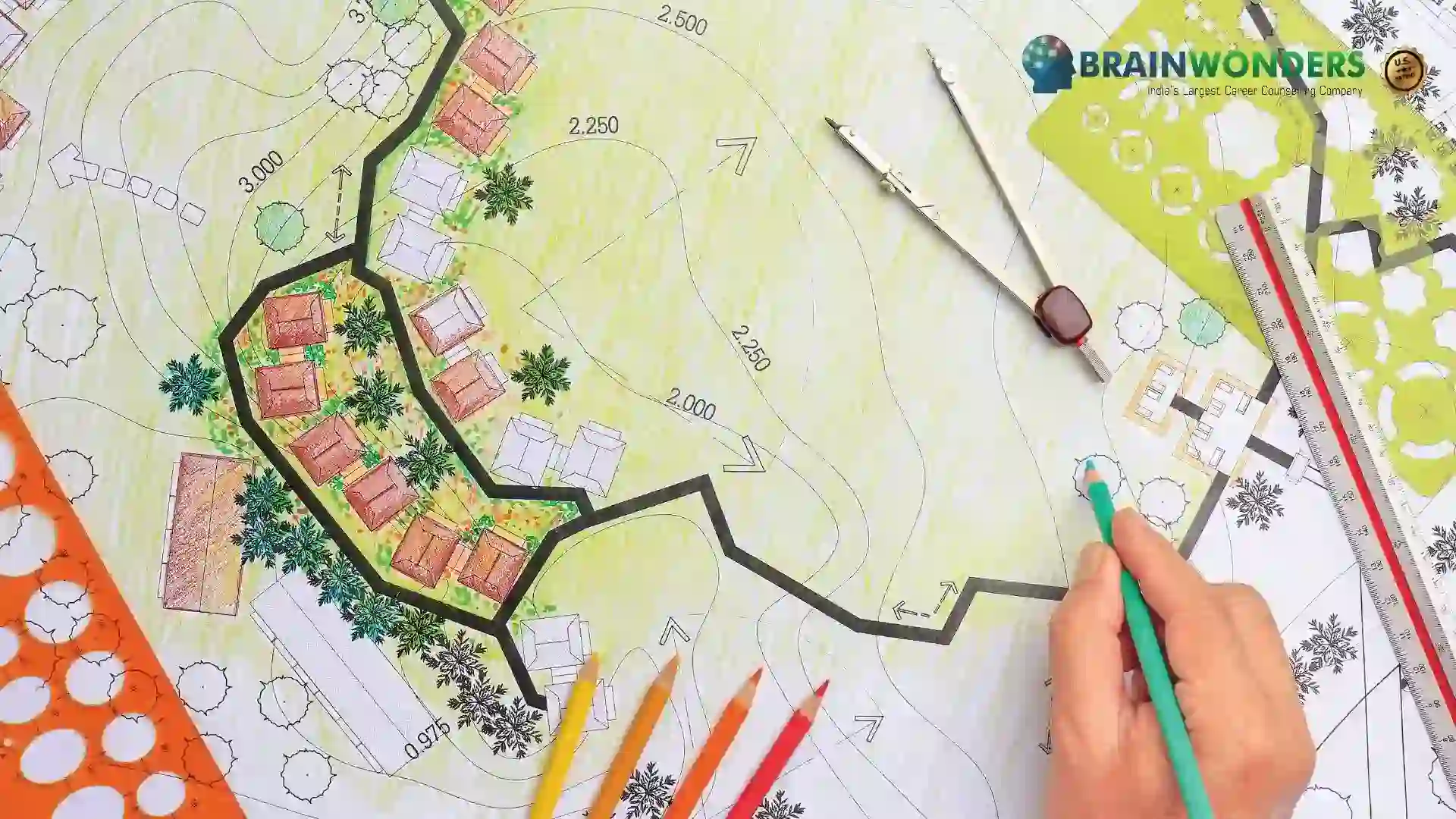How to become an Urban or Regional Planner
Overview, Courses, Exam, Colleges, Pathways, Salary

Overview
Who is Urban or Regional Planner ?
Professionals engaged in the detailed design of a city's layout with the goal of modifying the land to enhance the quality of life of its residents are known as urban/regional planners. By developing policies and laying down plans for the usage of land and other resources, urban/ regional planners not only build but also create communities and bolster the physical facilities available in the area. These include built environments in cities, metropolitan areas, towns, counties, and suburbs. Some of the large scale projects they work on can include building industrial areas, urban renewal initiatives, commercial developments. Their work aids in the accommodation of a rising population, the preservation of historical places, the facilitation of community expansion, and the provision of inventive and practical solutions to issues such as infrastructure, transportation, environmental deterioration, and resource shortages. Simply put, they assist in the development and re-development of a region by using their expertise to optimize the use of land and other resources.
Typical day at work
What does Urban or Regional Planner do?
- Meet with government officials, lawyers, developers, and the public to discuss development plans, community plans, and land use
- Provide recommendations of whether a proposal should be approved, denied, or granted conditional approval
- Compile and analyze data about the factors affecting land use from environmental studies, impact studies, censuses, surveys, and market research
- Plan and conduct field investigations, surveys, impact studies, and site investigations
- Gather information about the economic, cultural, social as well as the legal and political influences on land use
- During planning disputes, act as a mediator and provide evidence
- Present the planning proposals to government officials, planning officials, planning commissions, and the public
- Provide recommendation and design strategies to guide land use and resource planning in specific locations
- Review site plans produced by developers and environmental impact reports
- Evaluate the feasibility of proposals, identify the changes needed, and provide recommendations
- Stay up to date on zoning codes, building codes, environmental regulations, and other legal guidelines
Abilities and Aptitude needed
What are the skills, abilities & aptitude needed to become Urban or Regional Planner?
- An urban/regional planner must have excellent interpersonal and communication skills as they are required to interact frequently with government officials and other professionals, as well as the public. This also necessitates good negotiation and mediation skills.
- Their problem-solving, organisational, and time-management abilities are also essential for success in this position. Since they are required to conduct field investigations, an urban/regional planner should have remarkable mathematical and analytical skills as well as possess the relevant geographical and scientific knowledge. Familiarity with computer-aided software is required, such as Autodesk, Adobe Systems, GIS to name a few.
- A talent for creativity and innovation shall be necessary to design and plan changes in the built environment to optimize the use of resources in an economically feasible and environmentally friendly manner. An urban/regional planner should be able to display good leadership skills as well as be comfortable with working collaboratively with other professionals.
Pathways
How to become an Urban or Regional Planner?
Entrance Exam
Entrance Exam for Urban or Regional Planner ?
A list of common entrance tests conducted to seek admission for such courses.
- JEE Main
- National Aptitude Test in Architecture (NATA)
- Uttar Pradesh State Entrance Exam (UPSEE)
- JUEE or Jadavpur University Entrance Exam
- GATE for Master’s Degree
Various institutes conduct their entrance exams and interviews to analyze whether the candidates are eligible for the particular courses or not.
Courses
Which course I can pursue?
Best Colleges
Which are the best colleges to attend to become an Urban or Regional Planner?
Industries
Which Industries are open for Urban or Regional Planner?
- public sector, private sector, real estate, service firms, social agencies, non-profit housing groups, international consulting companies
- Public Bodies, Municipal Corporations, Multinational Corporation, Construction Companies, Architecture Companies, Urban Development Authorities
- Centre and State Government Bodies
- Private Organizations
- Non-profit Agencies
- City Municipalities
- Quasi-government Organisations
- World Bank
- UNESCO
- WHO
- Private Consulting Companies
- MNCs
internship
Are there internships available for Urban or Regional Planner?
Many urban planning bachelor's degree programs offer internships with public development agencies and community planning departments. These programmes enable students to apply their knowledge and earn useful experience in a real-world situation. An internship may help students get some of the experience they need to get a job. In fact, some programs require that students complete an internship in order to earn their degree. Internships are available with both public and private organisations.
Career outlook
What does the future look like for Urban or Regional Planner?
Urban/Regional planners are a part of an emerging field due to which they can find plenty of job opportunities in the private and government sectors. For those who are keenly interested in working for societal development, this job makes for an excellent opportunity to be involved in shaping places across the globe by bringing about a positive change in the settlement areas. An Urban/ Regional Planner can be employed in various industries including municipal corporations, construction agencies, architectural companies among others. The demand for urban/regional planners is projected to grow considerably in the coming decade due to the rapid growth of the population. Their expertise will be required to lead the large-scale development projects necessary to solve concerns such as housing shortages, transit systems, and resource scarcity that will arise as a result of the growing population. Most of these professionals work full-time normal business hours, however, they may be required to work on weekends and evenings to attend meetings or adhere to deadlines. They spend a considerable amount of time travelling for field visits and meetings with officials.





